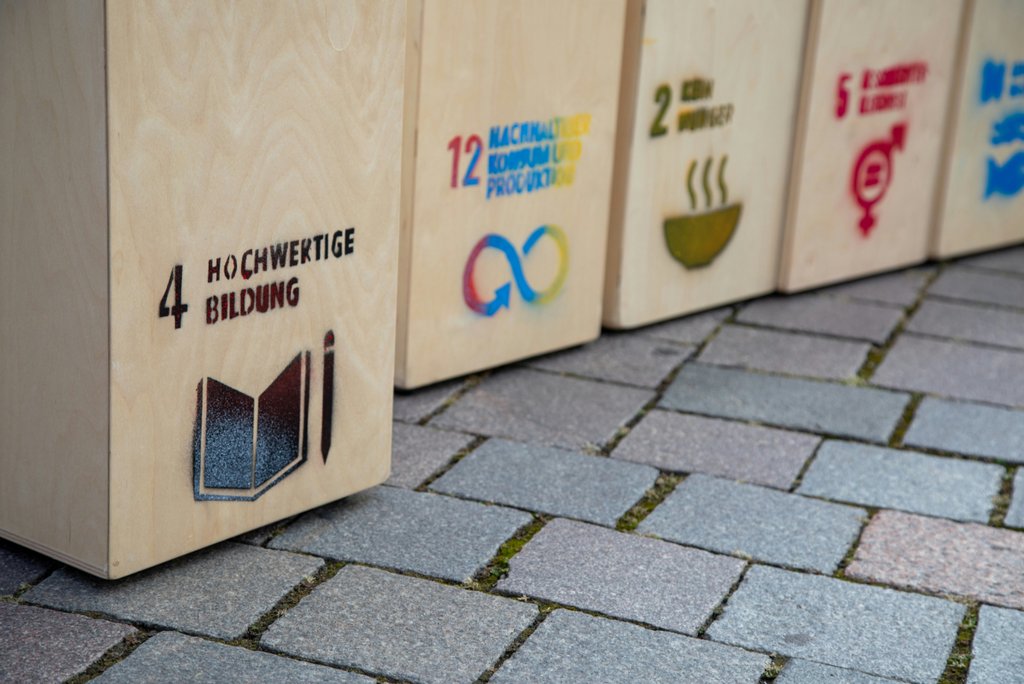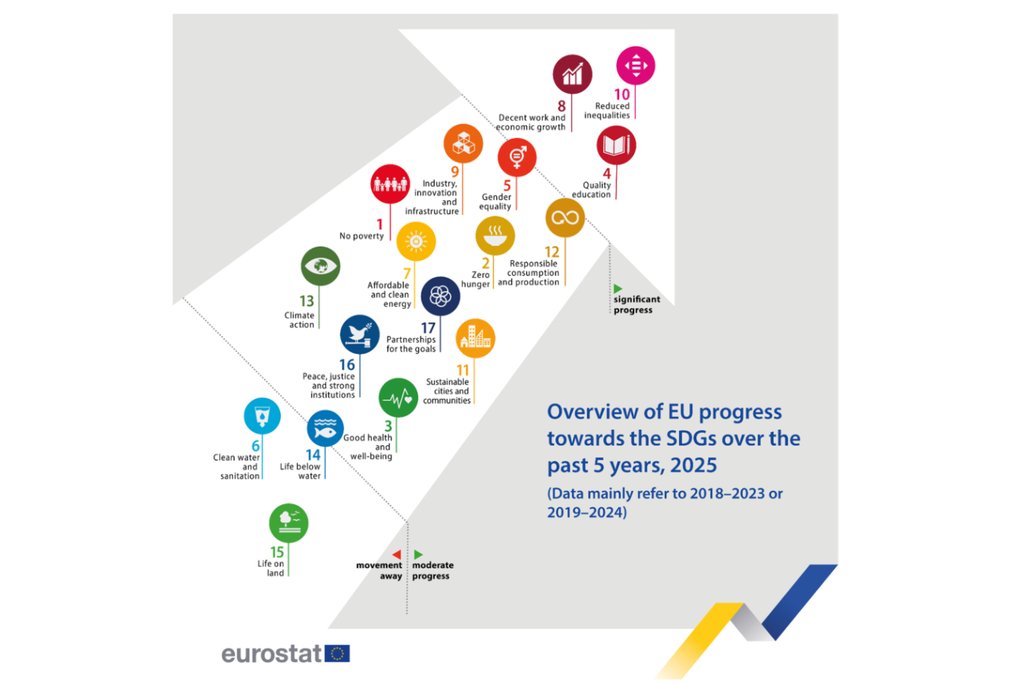The Eurostat report monitors the European Union's progress towards achieving the UN Sustainable Development Goals. It provides an annual overview of the EU, individual member states and other countries such as Switzerland. INFRAS also contributed to the 2025 report.

The United Nations' 17 Sustainable Development Goals (SDGs) aim to promote sustainable development worldwide in social, environmental and economic terms. They are at the center of the UN's 2030 Agenda for Sustainable Development. The European Union is also committed to these goals.
Report provides overview and delves deeper
Every year, the SDG Monitoring Report from Eurostat, the EU's statistical authority, analyzes current trends for the 17 goals for the EU and its individual member states, as well as for Switzerland, Norway and Iceland. The current report shows a more or less pronounced positive trend for most of the SDGs. However, in addition to the general trends, this year's report also shows differentiated progress as well as setbacks for the individual SDGs.
INFRAS analysis of five of the 17 SDGs
Since 2016, INFRAS, together with the Ecologic Institute, has been an integral part of the project team under the overall leadership of the Vienna University of Economics and Business (WU Vienna). INFRAS has analysed the following five SDGs:
- SDG 1: No poverty
- SDG 3: Good health and well-being
- SDG 4: Quality education
- SDG 5: Gender equality
- SDG 9: Industry, innovation and infrastructure

The monitoring report focuses on both short and long-term developments over the last five and fifteen years. The analysis is based on trends identified with the help of around 100 indicators.
Further information
- Monitoring Report on progress towards the SDGs 2024
- Overview of progress towards the SDGs 2025 (short version)
- Eurostat press release
- Eurostat dossier on the SDGs
- INFRAS web article on the Monitoring Report 2024
- INFRAS web article on "Sustainable development in vocational education and training" in Switzerland (in German)





